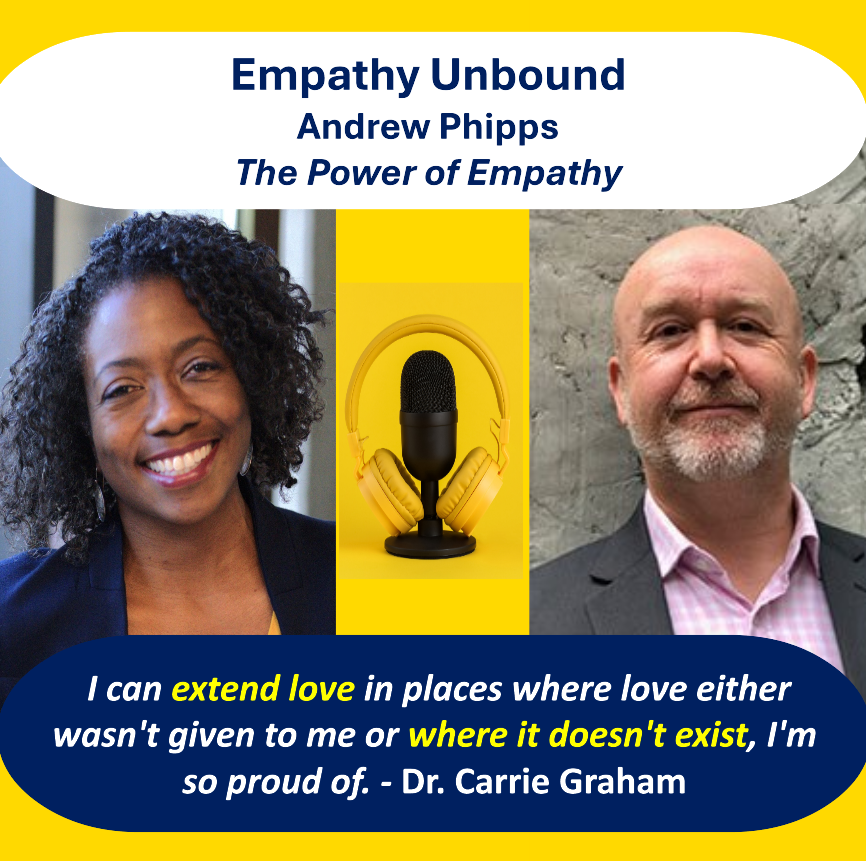
In this deeply personal episode of Empathy Unbound, host Andrew interviews Dr. Carrie Graham about her transformative journey from isolation to empowerment. Dr. Graham shares how growing up as an only child for 13 years and often being the only African American in educational and professional settings taught her the value of reflection and empathy. The conversation explores how her early experiences shaped her approach to learning and communication, starting from her original dream of becoming an attorney to finding her calling in sports medicine and eventually adult learning. Dr. Graham emphasizes the critical importance of asking the right questions, explaining how her healthcare background taught her that deeper inquiry leads to better understanding and more effective training and development. The discussion covers the power of storytelling in communication, the challenges she faced as an African American woman in predominantly white spaces, and how these experiences developed her leadership qualities. They explore current issues around diversity, equity, inclusion, and belonging, with Dr. Graham sharing her perspective on how recent corporate retreats from DEI commitments create opportunities for individual action. The episode delves into the role of curiosity in fostering empathy, the importance of diverse perspectives, and how professional development plans must account for individual experiences and backgrounds. Dr. Graham's insights reveal how empathy and understanding are essential for empowering employees and creating inclusive environments where everyone can thrive.
Listen Here > https://www.youtube.com/watch?v=wqGhyW-Lle8
Dr. Graham emphasizes that true empathy and effective training and development require deep curiosity, respectful inquiry, and the willingness to provide space for others to process and share their experiences. She advocates for approaching professional development with the understanding that individual backgrounds and experiences profoundly shape how people learn and grow, requiring customized approaches that honor each person's unique journey.
Listen Here > https://www.youtube.com/watch?v=wqGhyW-Lle8
Read > Psychology Behind Blocks in Training Development
Subscribe > C.A.L.M. Email for weekly industry insights
Get practical tools, strategies, and resources to design and deliver impactful training programs — right in your inbox.